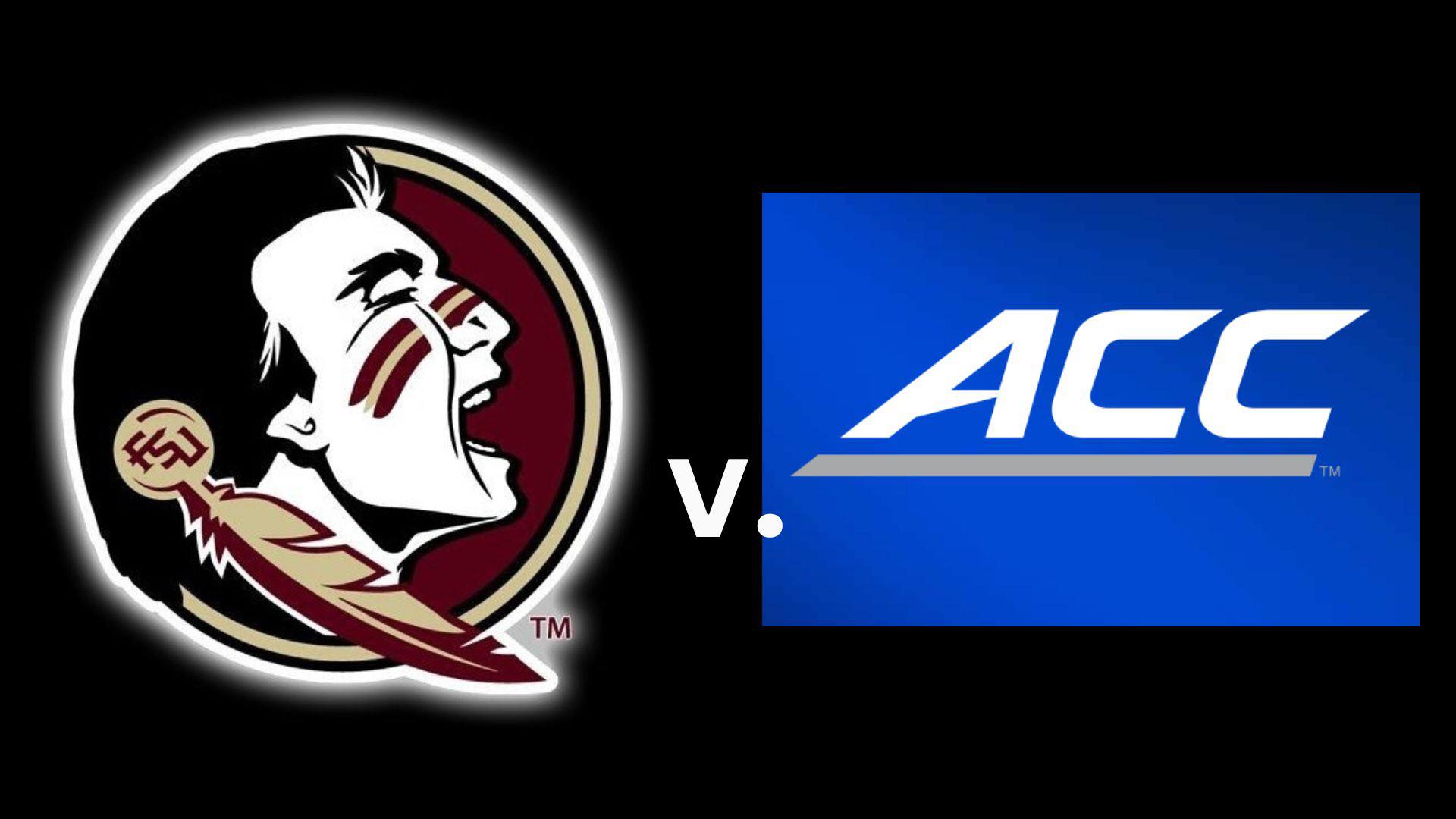DIdi Florida State got a partial victory in court in Leon County court today, although the bigger decision has been put off for another day.
Circuit Court Judge John Cooper denied the motion by the ACC to stay the case in Leon County in the matter of Florida State v. The ACC. Florida State is suing the conference to get out of the Grant of Rights. FSU also wants to be able to leave the conference with a significantly lower financial buyout than what the conference claims it should get.
Florida Judge Postpones Ruling on ACC Motion to Dismiss
The remainder of the case, the ACC’s motion to dismiss the case in Florida is being held over until April 22nd.
After nearly five hours of actual court time, (discounting lunch and breaks), Judge Cooper decided that he would deny the motion to stay the case. But he postponed a decision on the ACC’s motion to dismiss the case outright until later in the month.
Flipping the Roles
The case is the reverse mirror image of the one being held in Mecklenburg County, North Carolina. In that case, the ACC is the plaintiff and Florida State is the defendant.
Last week, after a March hearing, Charlotte Judge Louis Bledsoe III denied Florida State’s motion to dismiss the case. The decision was based on what he called rightful jurisdiction. Judge Bledsoe ruled, among other things, that since the ACC is in Charlotte, it is protected as an Unincorporated Non-Profit Association and that the proper venue for the case is Charlotte.
Tuesday’s hearing was slow by any measure. Judge Cooper walked in shortly after the assigned 9:30am start time carrying a large box of files and binders. With his black judge’s robe unzipped and hanging off his shoulders, he noted that he does not have a law clerk and thus did much of his own research prior to Tuesday’s hearing.
Judge Negates First to File Standard
In his ruling Tuesday, Cooper vocalized that the ACC had been forum shopping when it filed a suit in Charlotte against Florida State two days before the FSU Board of Trustees even voted to file its suit against the conference in Leon County. There is a “first to file” standard that grants jurisdiction to the side that gets to court first.
ACC attorneys had argued last month in Charlotte and again Tuesday in Tallahassee that they knew what the FSU Board of Trustees was going to do. They added that the mere discussion of suing to get out of the Grant of Rights was a violation of the ACC membership agreement. Judge Cooper did not agree that any wording in the Grant of Rights overruled any school’s right to litigate. Cooper said that anticipatory lawsuits, as he called the ACC’s filing, negated the “first to file” precedent.

Cooper said the ACC benefitted from Florida State being a public school. He said Florida’s public hearings laws mandated that FSU publically post its meeting of the board of trustees. Thus the ACC had a heads-up of the FSU lawsuit and rushed to the Charlotte courthouse to file first. He also referred to the lawsuit that came after that by another ACC member. “How did Clemson get a suit filed without you all knowing about it?” he asked the ACC attorneys.
Clemson has filed a lawsuit similar to Florida State’s, but there has yet to be any response or suit from the conference toward the school.
Cooper noted that if the ACC was not forum shopping, they could have gone to Leon County and filed a countersuit against Florida State. But he said instead the ACC tried to beat the school to the punch in its own backyard.
FSU Takes Issue with Mecklenburg County Ruling
Florida State counsel, Peter Rush took issue with Judge Bledsoe’s Mecklenburg County ruling in his presentation Tuesday. He said a significant rationale behind the ruling was the ACC’s status as an unincorporated non-profit association. Judge Bledsoe, in his ruling last week, wrote that FSU knew that when it joined the conference, and that it limited the possibility of litigation against the conference.
Rush noted that the Uniform Unincorporated Non-Profit Association codes were enacted in 2006. Florida State joined the ACC in 1991. He added that in no agreement with the conference over those 30 years did the school waive its sovereign immunity right to litigation.
ACC Trying to Protect ESPN, Evidence
Within the hearing Tuesday, the ACC argued for a stay on discovery in an effort to keep much of the evidence sealed. Previously, in Mecklenburg County, conference attorneys were joined by lawyers from ESPN. They both argued that there were proprietary trade secrets in the evidence. They argued a public unveiling could damage ESPN’s ability to negotiate with schools and conferences if competing networks were allowed to see the details. ESPN was not represented in Leon County on Tuesday. But ACC counsel Alan Lawson continued that line of argument.
At one point, something was revealed that barely raised an eyebrow to those in the case. But it will certainly do so for others who cover the ACC. It has long been assumed and insinuated that the final 2016 version of the Grant of Rights with all of the signature pages for each school is under lock and key at the conference headquarters in Charlotte. Many in the media, including Last Word, have had a copy for some time, yet the cloak-and-dagger atmosphere of the GoR was legend.
It turns out it may only be an urban legend. ACC counsel said Tuesday that the GoR is in the public arena because public universities have let it out, and that it is only the ESPN contract with the ACC that is in a vault in the conference headquarters.
Did ACC Violate Its Own Rules?
Part of Florida State’s argument in both venues was that the ACC had no right to sue the school. They claim the conference did not comply with its own bylaws. Those bylaws mandate that a 2/3 approval vote be completed from the member schools prior to filing the suit in Charlotte. In his final ruling of the day, Judge Cooper said that argument will carry over to the hearing later in the month as they continue to consider the ACC’s motion to dismiss. The school alleges that the conference is withholding discovery such as the minutes from the meeting where the vote eventually took place three weeks after the first suit was filed.
Judge Cooper said the rush to get the first filing in was proof that the ACC was forum shopping.
The case of ACC v. FSU in Mecklenburg County is fluid as the court waits to see if FSU is going to appeal Judge Bledsoe’s ruling of last week.






